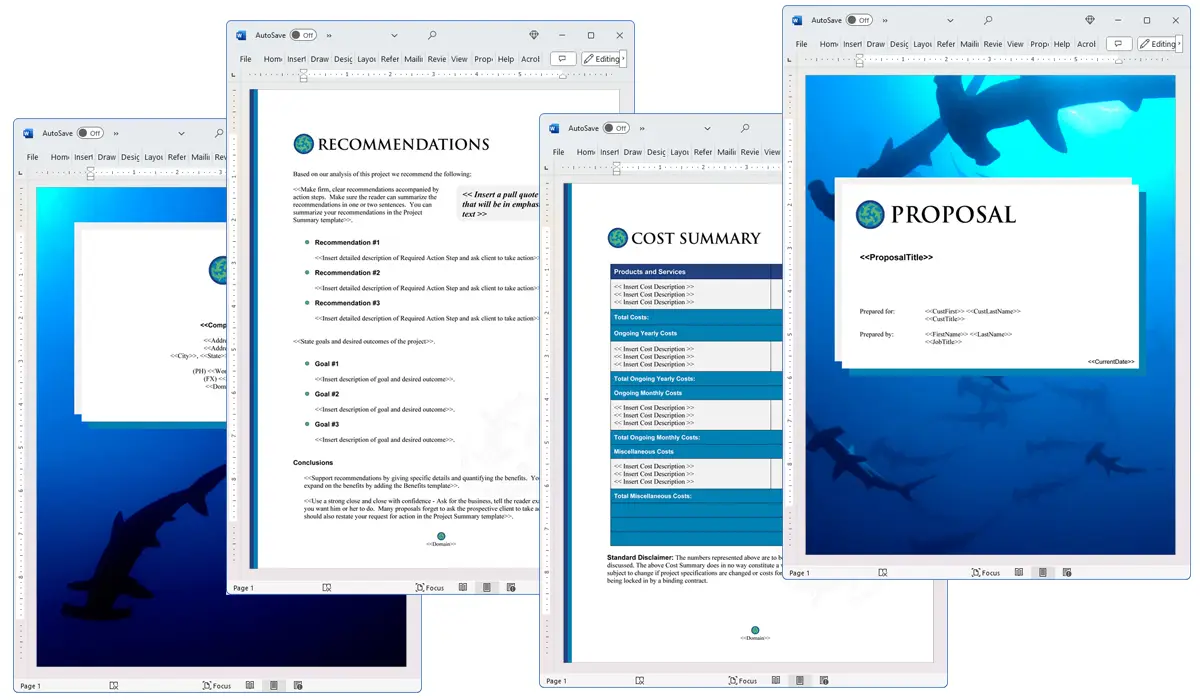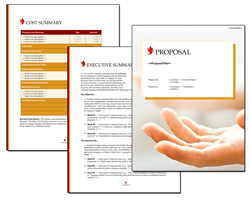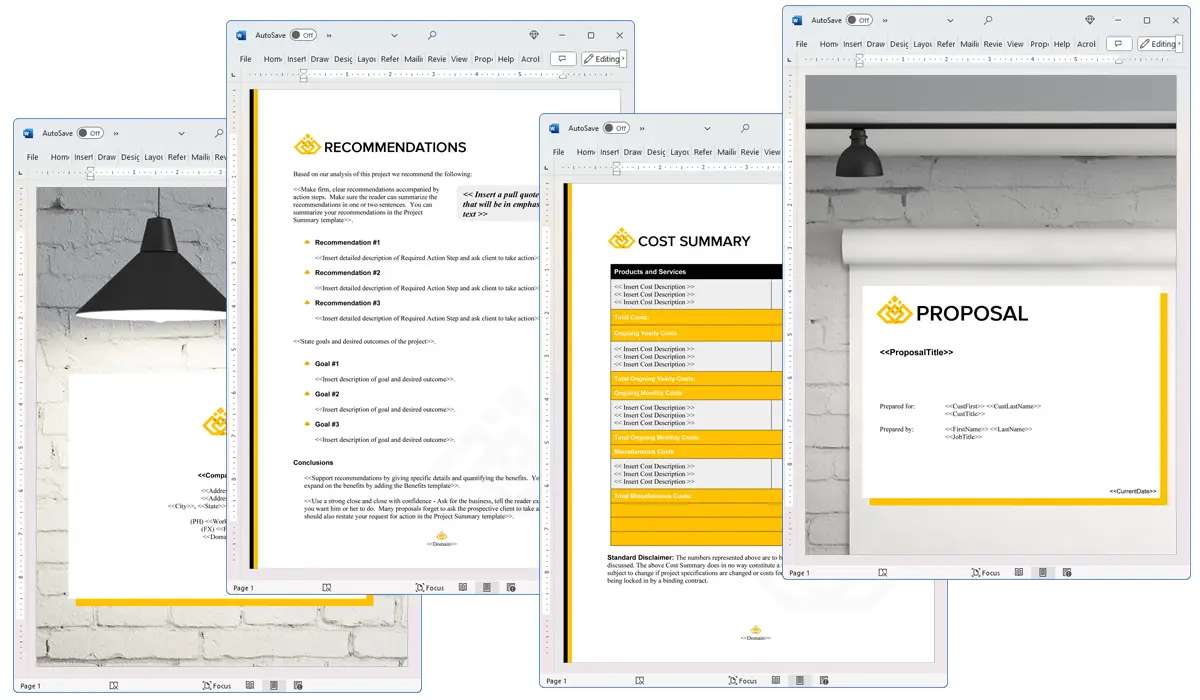What is the Commodities chapter used for?
Proposal Kit Professional Bundle adds more design themes, all six Contract Packs,
a project management library, and Expert Edition software.

Illustration of Proposal Pack Nature #11
We include this Commodities chapter template in every Proposal Pack, along with thousands more. You assemble this chapter with others in various combinations to create custom-tailored business proposals, plans, reports, and other documents. Proposal Packs apply custom visual designs to the templates, giving the final documents a consistent professional finish.
 DOWNLOADABLE, ONE-TIME COST, NO SUBSCRIPTION FEES
DOWNLOADABLE, ONE-TIME COST, NO SUBSCRIPTION FEES
Overview of the Commodities Chapter
In the field of business proposals, the Commodities chapter serves as an important component when detailing the scope and nature of physical products or services that are traded on a commodities market. This chapter provides a structured way to present such commodities, which are often central to the proposal's subject matter. Understanding this chapter is key to creating proposals that deal with materials, goods, or products that have a standardized value across various markets.
How is the Commodities Chapter Used?
The Commodities chapter is predominantly used in proposals to give a comprehensive overview of the commodities involved in a project or business venture. It helps in explaining the significance and role of these commodities within the proposed project. Whether the proposal is aimed at securing funding, forming partnerships, or providing a business plan, this chapter allows the writer to clearly describe the commodities, their market status, and their relevance to the proposal's goals.
What is Included in the Commodities Chapter?
Typically, this chapter includes:
- A detailed description of each commodity involved in the proposal.
- The current and projected market values of these commodities.
- Information on the sources and quality of the commodities.
- Analysis of market trends affecting these commodities.
- Potential risks and benefits associated with the commodities considering the situation of the proposal.
These elements ensure that the proposal reader fully understands the commodities' importance and how they fit into the larger proposal context.
Use Case Examples for the Commodities Chapter
The Commodities chapter can be particularly useful in various sectors, such as:
- Environmental and Green Initiatives: Proposals for projects aimed at sustainable agriculture might detail commodities like organic corn or eco-friendly pesticides.
- Nature and Energy Resources: Proposals concerning renewable energy might describe commodities like solar panels or wind turbines.
- Mining: In proposals related to mining, the commodities described could be metals like iron ore or copper.
- Physical Items: For manufacturing proposals, this chapter could cover raw materials like steel or plastic that are crucial for production processes.
Key Takeaways
- The Commodities chapter is important for proposals dealing with standardized products or materials traded on commodity markets.
- It helps proposal readers understand the specifics and the significance of the commodities involved.
- This chapter provides detailed descriptions, market analysis, and trend information for each commodity.
- It is widely applicable in various industries including environmental sectors, energy resources, and physical manufacturing.
- The clear exposition of commodity-related data in this chapter aids in enhancing the credibility and comprehensiveness of the business proposal.

Illustration of Proposal Pack Spiritual #4
 What Our Clients Say
What Our Clients SayThis is a great product. Everything that you need to have professionally prepared proposals, business plans, etc. Love this product!"
McBIV Corporation
 4.7 stars, based on 841 reviews
4.7 stars, based on 841 reviewsAlternate Chapters
Related Chapters
Document Layouts Using the Commodities Chapter

The Commodities chapter and other chapters are integrated into a Word document as illustrated here in the Proposal Pack Business #20 design theme. There are hundreds of design themes available, and every design theme includes the Commodities chapter template.
A proper business proposal will include multiple chapters. This chapter is just one of many you can build into your proposal. We include the complete fill-in-the-blank template in our Proposal Pack template collections. We also include a library of sample proposals illustrating how companies in different industries, both large and small, have written proposals using our Proposal Packs. This template will show you how to write the Commodities.
We include a chapter library for you to build from based on your needs. All proposals are different and have different needs and goals. Pick the chapters from our collection and organize them as needed for your proposal.
Using the Proposal Pack template library, you can create any business proposal, report, study, plan, or document.
 Ian Lauder has been helping businesses write their proposals and contracts for two decades. Ian is the owner and founder of Proposal Kit, one of the original sources of business proposal and contract software products started in 1997.
Ian Lauder has been helping businesses write their proposals and contracts for two decades. Ian is the owner and founder of Proposal Kit, one of the original sources of business proposal and contract software products started in 1997.By Ian Lauder
 Published by Proposal Kit, Inc.
Published by Proposal Kit, Inc.


 Cart
Cart
 Facebook
Facebook YouTube
YouTube X
X Search Site
Search Site